As a transport company, it is our duty to do everything to reduce our carbon footprint and to include environmental and climate protection in our processes and guidelines, for the benefit of future generations.
Reducing its ecological footprint is high on the JOST agenda. In this sense, the renewal of its ISO 14.001 certification and the adoption of the Lean & Green project have pushed JOST to invest even more in greener transport. To achieve this goal, we have analysed and defined the fields where we can take action to reduce our GHG emissions.
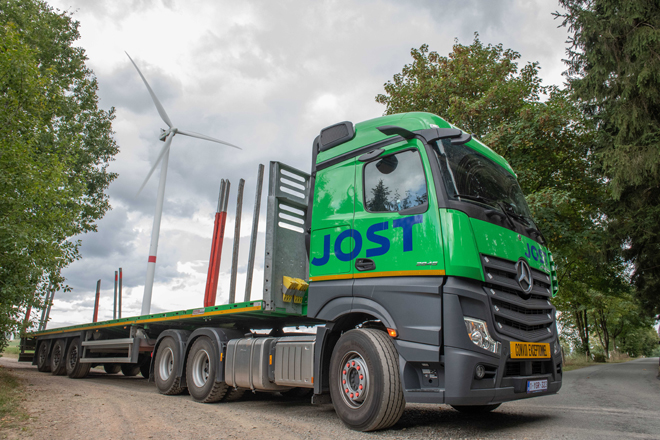
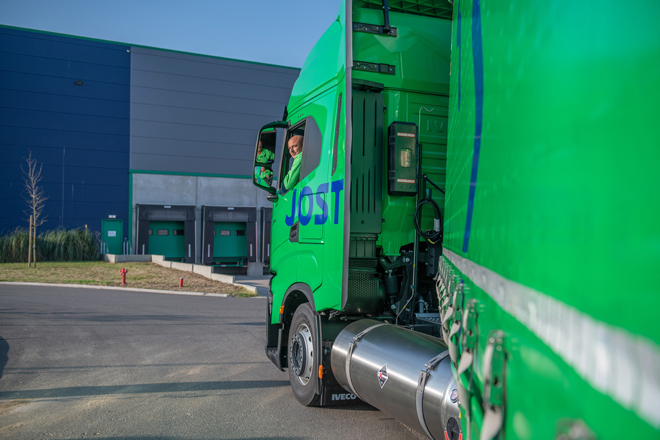
State-of-the-art transport for a greener environment!
The greatest challenge in our attempts to reduce GHG emissions lies in the composition and management of your fleet of vehicles.
To achieve reductions, JOST is investing heavily in LNG, an alternative to diesel fuel. It has purchased 500 LNG trucks in two years (1/3 of its fleet) and has constructed 4 LNG filling stations at JOST bases, set to be made accessible to other transport companies in the near future. Moreover, with a view to ensuring the viability and profitability of the integrated project, a company tanker continuously supplies our LNG filling stations.
This diesel alternative allows us to reduce not only our CO2 emissions, but also our emissions of NOx and particulates, as well as cutting back sound pollution.
Please note that the rest of our fleet is made up of latest-generation EURO VI trucks.
Systematic search for innovation
JOST stands out for its proactive search for alternatives and innovations to ensure the long-term prospects of the sector.
After having installed solar panels on its buildings, JOST is now installing them on its vehicles!
The goal here is to reduce the need for engines to run unnecessarily to recharge truck batteries. Similarly, there is no more need to run engines to charge the batteries used for drivers’ living purposes.
The solar panels also supply vehicle refrigeration units. Once these engines stopped, there is no need to run them again to power the batteries feeding the drivers’ personnal equipments.
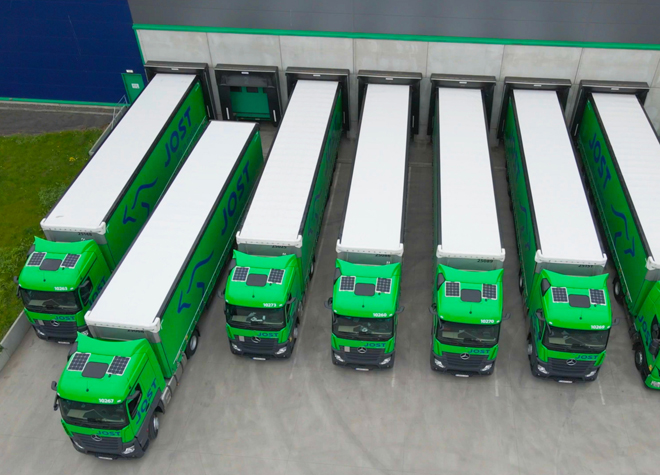

Exact monitoring of our drivers’ fuel consumption and driving behaviour.
Our IT department is developing applications to systematically search for ways to cut back empty mileage to assist our planners.
Right from the start, our drivers receive in-house training on eco-driving. Its aim is to instil in drivers the right habits and the right attitude to adopt on the road to optimise vehicle use, to anticipate situations, to handle hills and inertia properly – basically all factors helping to minimise fuel consumption.
Thanks to this annual training, our drivers pay extra attention to the road and anticipate situations more, thereby also preventing accidents.
The fuel consumption of our vehicles is constantly monitored. Each driver is coached on his driving behaviour, all with a view to understanding and analysing – together with him – any habits causing excessive fuel consumption.
Noise, a form of pollution often forgotten
JOST is an active participant of a little-known project, PIEK. Its aim is to prioritise overnight deliveries and to reduce noise pollution. This project has further positive aspects. Driving at night when motorways are less congested means fewer traffic jams and less pollution. Through combining night driving with a voluntary 4 km/h speed reduction in international trucking and through monitoring optimal tire pressure, we ensure less pollution.
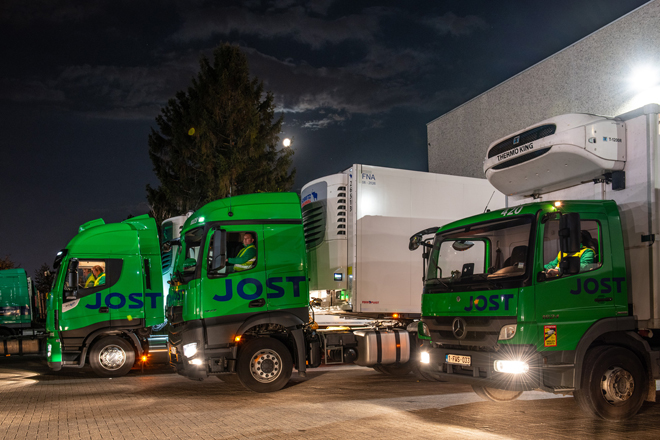

Environmentally friendly buildings
Our buildings are designed to minimise energy consumption. Through installing more than 7,500 m2 of solar panels, presence detectors to automatically switch our LED lighting on/off, skylights, excellent insulation and pellet boilers, JOST is assuming eco-responsibility in the use of its buildings and facilities.
Synchromodal transport
Multimodal transport presents several benefits for the environment.
- It allows greater flexibility through daily departures.
- Payload is increased (greater than that of road transport).
- The low accident rate ensures greater safety for the goods transported.
But above all, multimodal transport enables the impact of CO2 emissions to be reduced and benefits society as a whole through having fewer trucks on the road.

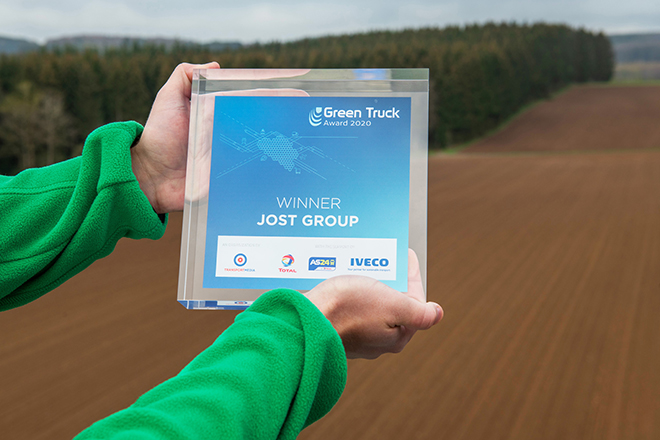
JOST, the recipient of the Green Truck Award in 2015 and 2020 in honour of its environmental efforts!
